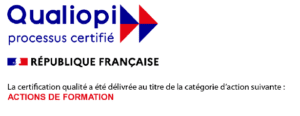
This training is based on extensive experience in implementing the Safety of Life requirements for embedded systems and software developed for critical applications in the automotive field. The main contribution of this training lies in our ability to provide a detailed level of information on the understanding of the specificities of this standard.
PART 1
DAY 2
DAY 3
Coding knowledge
Project officer, quality manager, programmer
Process Engineer, Project Leader
Projection and printed copies of Powerpoint presentations, practical case studies, exercises, situational examples, theoretical examples, video materials, …
Assessments at the beginning and end of the course, quizzes …
5 working days before the course start date (if financed by OPCO).
A training certificate complying with the provisions of Article L. 6353-1 paragraph 2 is issued to the trainee.
2024 :
Satisfaction rate: 88%.
Number of sessions: 7
Number of trainees: 36

I subscribe to the training newsletter
Sign up for
our newsletter
© 2024 SERMA GROUP – Terms and Conditions – Data protection policy
Télécharger le catalogue de formation SERMA
Download the SERMA training catalog